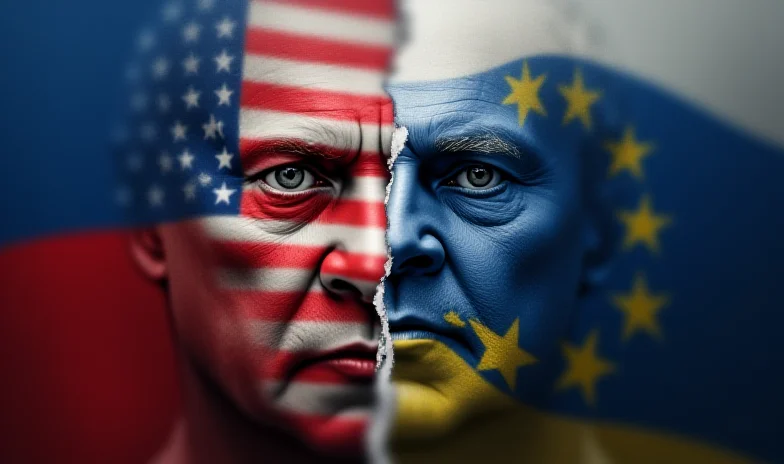Europe finds itself at a crossroads, facing internal divisions and external pressures. Recent events have highlighted a growing rift between the United States and Europe, particularly regarding the conflict in Ukraine and the broader question of international leadership.
US Shifts Stance on Ukraine
In a surprising turn of events, the United States has seemingly aligned itself with Russia on the issue of conflict resolution in Ukraine, a move that distances it from its European allies. This shift has raised eyebrows and sparked concern within the European Union, which has consistently supported Ukraine's sovereignty and territorial integrity.

The reasons behind this shift in US policy remain unclear, but it comes at a sensitive time, as tensions in the region continue to simmer. This move could potentially undermine European efforts to mediate a peaceful resolution to the conflict and further destabilize the region.
EU Questions US Leadership
Adding to the tension, a senior EU diplomat has openly questioned America's continued leadership role in the West. This comes in the wake of a reported confrontation between former U.S. President Donald Trump and Ukrainian President Volodymyr Zelensky in the Oval Office. The EU has reaffirmed its unwavering support for Zelensky and Ukraine, signaling a potential divergence in priorities between the two transatlantic partners.
“The free world needs…,” said a top EU official, hinting at a possible power shift on the global stage. The EU's commitment to Ukraine remains steadfast, even as the United States appears to be reassessing its strategic priorities.

Internal European Sentiment
Amidst these geopolitical shifts, there's a strong sentiment within Europe to preserve its unity and values. An appeal for Europe launched by Michele Serra garnered over a thousand responses in just a few hours, with many expressing a deep emotional connection to the continent's origins and a desire to see it thrive.
One reader commented,
"I saw Europe being born and I would not want to see it die..."This sentiment reflects a broader concern about the future of Europe in a rapidly changing world.

Furthermore, the United States itself is undergoing internal changes, with President Trump expected to sign an order designating English as the official language. More than 30 states have already passed similar laws, highlighting a growing emphasis on national identity within the US. This move, while domestic in nature, could further contribute to the perceived divergence between the US and Europe.
The coming months will be crucial in determining the future of transatlantic relations and the role of Europe in the global arena. The challenges are significant, but the commitment to European unity and values remains strong.
